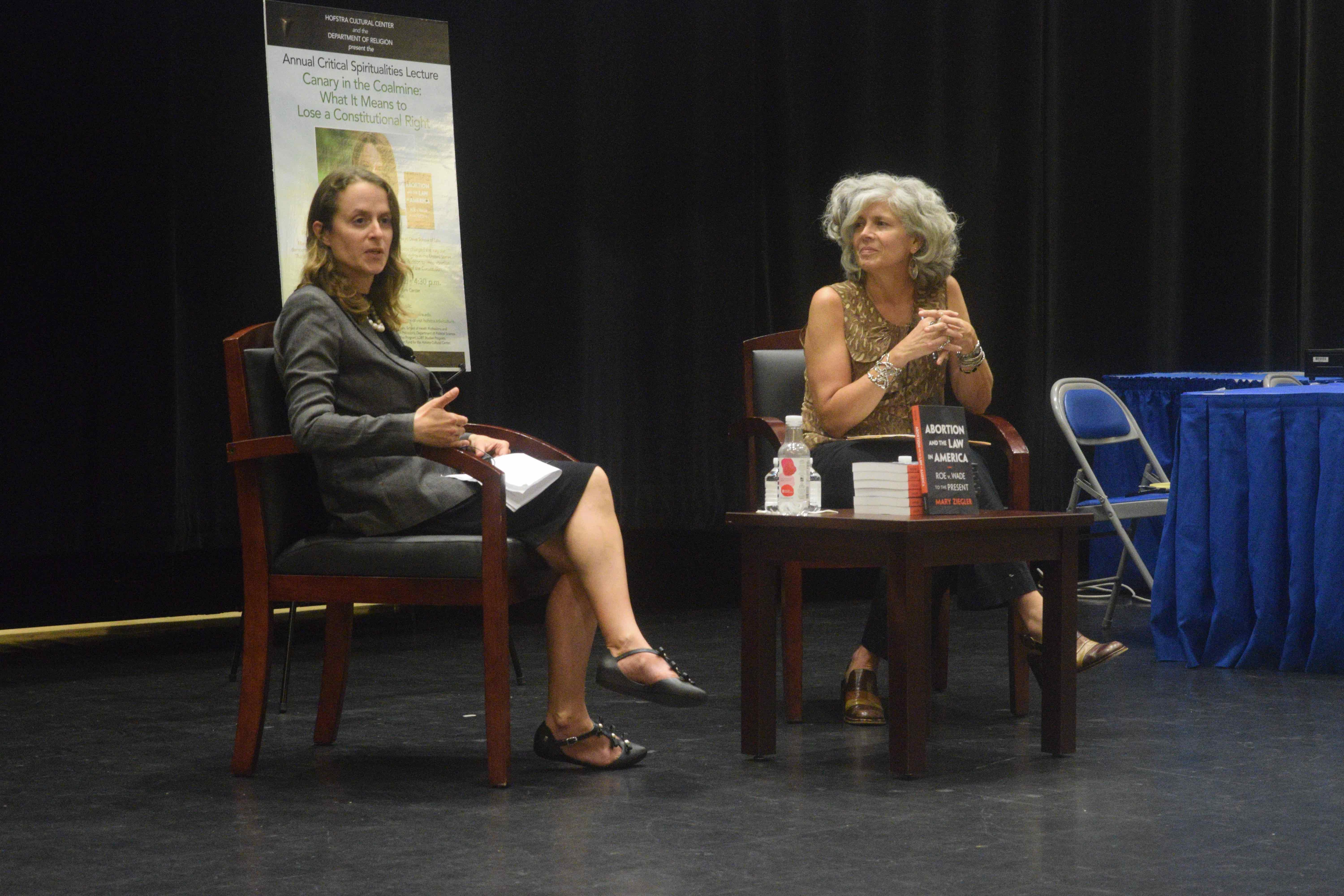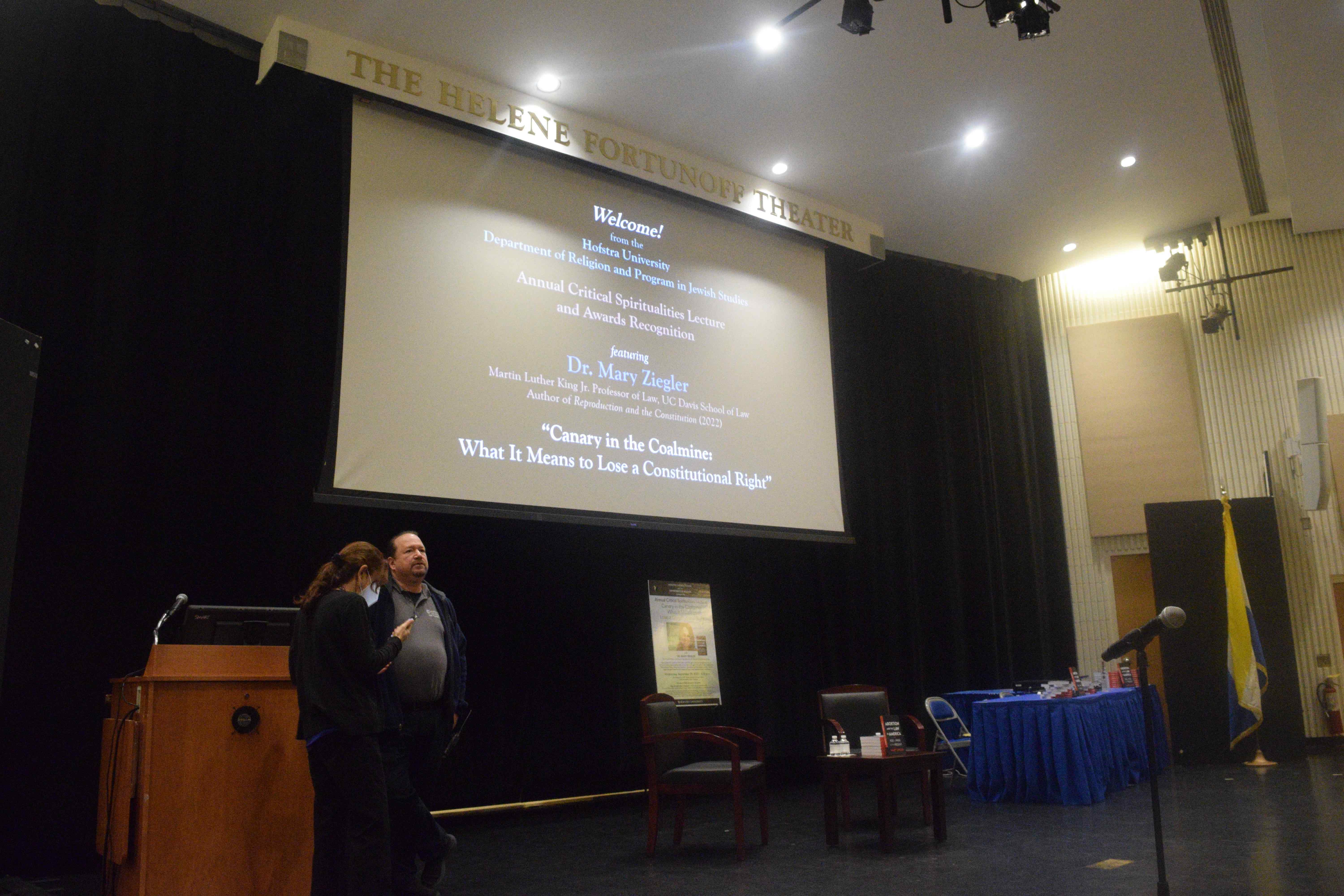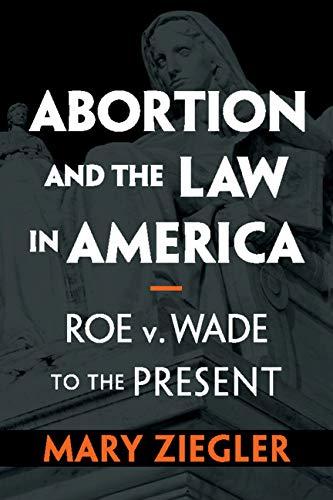
Mary Ziegler (left) with Julie Byrne (right)
Hofstra University Hosts Legal Historian Mary Ziegler
A Constitutional Lawyer Explains The History Of The Abortion Debate
By Eric MunsonOct. 2 2022, Published 10:11 a.m. ET
A Constitutional Lawyer Explains The History Of The Abortion Debate

Hofstra University
Wednesday September 28, Hofstra University hosted Dr. Mary Ziegler, a legal historian and law professor from the University of California, Davis at the Fortunoff Theater in Monroe Lecture Hall. Ziegler gave a lecture about the ongoing abortion debate and the overturning of Roe v. Wade.
The event was titled “Canary in the Coalmine: What it Means to a Constitutional Right.” It was a collaboration between the Department of Religion and numerous other departments at Hofstra.
“When people ask me to talk about this issue, it’s usually in the context of abortion as either a religious issue or an issue for women,” Ziegler said.
Ziegler went on to say the history of the abortion debate is about “fundamental changes to the democracy works.”
Ziegler said the modern pro-life movement began in the 1960s, which was when states began “carving out some exceptions to the [abortion] laws.” As a result, physicians struggled to “justify under existing laws” that the procedures were in their patients’ best interests.
In 2019, the American Law Institute proposed allowing abortions in cases of rape, incest, certain health threats and certain fetal abnormalities. This caused “great consternation” among Catholic lawyers and physicians who believed these laws were “immoral” and “contrary to the religious teachings.”
However, even within the Roman Catholic Church there were clashes and disagreements about exactly how to approach the abortion debate.
“The pro-life movement’s religious commitments in no ways meant it was monolithic,” Ziegler said. “It is remarkably, politically diverse.”
Ziegler then went on to explain the “marriage of convenience” between the pro-life movement and the Republican Party, referring to when pro-life individuals crossed party lines when presented with a pro-life party.
Ziegler mentioned Planned Parenthood v. Casey, a landmark Supreme Court decision that upheld Roe v. Wade. This decision came as a shock to the pro-life movement because of the conservative supermajorty.
“The Supreme Court would not overrule Roe, unless the public was ready to accept that and the public, they believed, was not yet ready to accept the reversal of Roe,” Ziegler said.
Ziegler said that she was “not surprised” that the court overruled Roe v. Wade, but she was surprised that they “overruled the law in the way that they did.” She said that it seemed designed to “maximize damage to the Court’s reputation.”
Ziegler explained that when the Supreme Court opinion leaked, they had ample time to edit it. Despite the backlash from both the right and the left, they “essentially suggested that the opinion was a perfect first draft.”
“If the Supreme Court has promised us that voters will decide for themselves what abortion policy will look like, the question is whether that’s going to be true at all,” Ziegler said.
After the event, Ziegler was selling and signing copies of her book Abortion and Law in America: Roe v. Wade to the Present.

Julie Byrne, a professor and the chair of the Department of Religion at Hofstra, was the main organizer of the event and also asked Ziegler some questions after her lecture.
“Religion is related, but obviously all departments from health professions and human services, all the way to political science are just so interested in this topic,” Byrne said.
Byrne said she loved the event and that it was important to explain the ongoing issues in a “non-polarizing way.”
“I just feel like that kind of conversation is so helpful for the media context today that is so black and white, one side or the other,” Byrne said. “You’re always getting the story from pro-life or pro-choice sides whereas this was actually new information.”
Colton Hanna, a Hofstra student studying psychology and philosophy, said he came to the event because he closely follows Ziegler’s work. Hanna said it was a great opportunity to talk to a constitutional lawyer about constitutional rights.
“I’m just a huge fan of her legal theory and what she’s written about,” Hanna said. “So when I heard she was coming, I was like, ‘Oh, I have to go no matter what, regardless of classes, regardless of anything.’”
Abigail Anderson, a Hofstra student studying psychology and religion, came to the event because she’s interested in going to law school.
“It was really cool to get the opportunity to hear from an actual constitutional lawyer, especially on something that is so prevalent in America today,” Anderson said.

